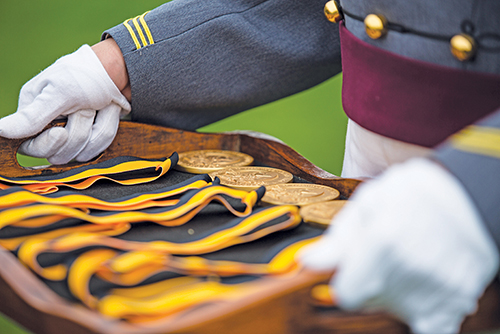The West Point Association of Graduates (WPAOG) has named the 2024 recipients of the Distinguished Graduate Award. This annual award has been bestowed upon those West Point graduates whose character, distinguished service and stature draw wholesome comparison to the qualities for which West Point strives, in keeping with its motto: “Duty, Honor, Country.” The awards will be presented in a ceremony at West Point on May 21, 2024. The 2024 Distinguished Graduate Award Recipients include a former Supreme Allied Commander Europe, one of the foremost experts on China in the United States today, the 53rd Chief of Engineers, a legendary West Point recruiter, the 40th Chief of Staff of the Army, and West Point’s most commercially successful woman graduate to date.
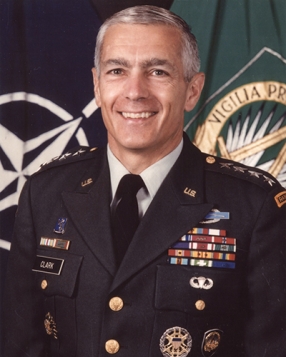
GEN (R) Wesley K. Clark ’66
After graduating first in his class by Order of Merit and commissioning as an Armor second lieutenant, GEN (R) Wesley K. “Wes” Clark began a nearly 35-year Army career that President Bill Clinton says “made [him] one of America’s finest soldiers of the 20th century.” Clark studied as a Rhodes Scholar after graduation, earning a degree in philosophy, politics, and economics before serving in Vietnam. One month into his company command, Clark’s unit was engaged in a firefight in an enemy base camp. Though wounded multiple times, he led the fight to drive out the enemy, receiving the Silver Star for his actions. After a three-year tour with the USMA Department of Social Sciences and an appointment as a White House Fellow, Clark commanded at the battalion, brigade, and division levels. Interspersed with his commands, Clark led the training at the National Training Center and Battle Command Training Program from October 1984 to 1991, preparing a new generation of military leaders for the Gulf War and beyond. Clark was then the senior military strategist for the Joint Staff, where he helped create the National Military Strategy and Joint Vision 2010. In 1995 he helped negotiate the Dayton Peace Agreement, ending the war in Bosnia. In his last assignment, as Supreme Allied Commander Europe (1997-2000), Clark helped design and execute the strategy that won NATO’s first conflict, which subsequently established an independent Kosovo. Clark retired in 2000, having received the Presidential Medal of Freedom, five Defense Distinguished Service Medals, two Army Distinguished Service Medals, a Purple Heart, and numerous foreign awards, including British and Dutch honorary knighthoods. In 2003-04, Clark ran for president of the United States, stressing the need to bring veterans into the political process, and he later founded Renew America Together to promote common ground and reduce partisan gridlock. An author of four books, Clark is a frequent commentator and analyst on national news programs and regularly works with leaders from Latin America, Europe, Africa, Asia, and the Middle East. [WATCH VIDEO]
AMB Karl W. Eikenberry ’73
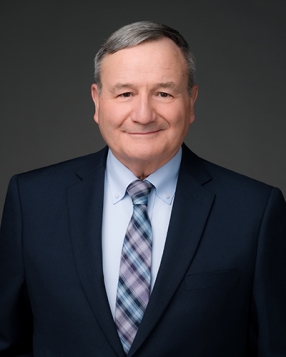
“He is a soldier-statesman of the highest order”: so says U.S. Senator Jack Reed ’71 about Ambassador Karl Eikenberry, a retired lieutenant general of the U.S. Army who is known for his demonstrated character; distinguished military, diplomatic and scholarly service; multifaceted service to West Point; and lifelong dedication to furthering our nation’s security. After earning his Ranger Tab and completing company command with the 3rd Battalion, 19th Infantry Regiment, Eikenberry earned a master’s degree in East Asian studies from Harvard, putting him on a path that led COL E. John Gregory, Director of USMA’s Chinese academic program, to call Eikenberry “one of the foremost experts on China in the United States today.” He has served as senior country director for China, Taiwan, Hong Kong, and Mongolia; was Defense attaché for the U.S. Embassy, Beijing; and served as director for strategic planning and policy (J-5), U.S. Pacific Command, for which he led a review and revision of major U.S. military contingency plans in the Western Pacific, with a focus on China. During 2005-07, Eikenberry was commander, Combined Forces Command-Afghanistan in Kabul, and, after retiring in 2009, his almost four decades of national service culminated as the U.S. Ambassador to Afghanistan from 2009 to 2011. Following his retirement from federal service, Eikenberry embarked on a distinguished career in academia: William J. Perry Fellow for International Security at Stanford University, director of the U.S.-Asia Security Initiative, and faculty member of the Shorenstein Asia-Pacific Research Center and the Center for International Security and Cooperation, Freeman Spogli Institute for International Studies at Stanford University. He later lived in Riyadh advising on Saudi defense transformation. Today, Eikenberry is a distinguished senior fellow at the Stimson Center, a senior advisor to the United States Institute of Peace, and a faculty member of Schwarzman College. He has earned several foreign and domestic awards and is the author of numerous scholarly articles. [WATCH VIDEO]
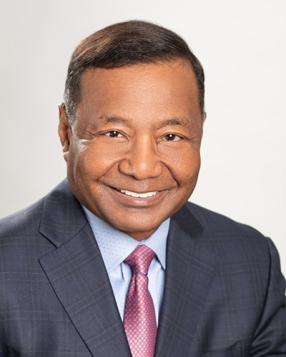
LTG (R) Thomas P. Bostick ’78
Commissioned as an Engineer officer, LTG (R) Tom Bostick’s 38-year Army career demonstrates a distinguished commitment to duty during crises. During 9/11, he was responsible for securing the country’s nuclear codes and moving Pentagon leadership to an alternate command post. After the Army failed to achieve its recruiting goals in 2005, Bostick was assigned to the U.S. Army Recruiting Command, leading it to success for four consecutive years. As the U.S. Army’s G-1, Bostick served with the group tasked with assessing the “Don’t Ask, Don’t Tell” law. He led the effort to provide opportunities for Sikhs and women to serve in combat arms. Following Hurricane Sandy in 2012, Bostick, as the 53rd Chief of Engineers, led the recovery effort along the East Coast. “The U.S. Army repeatedly selected Tom to lead where crisis, complexity and a need for a vision were the prominent traits of an assignment,” says GEN (R) Curtis Scaparrotti ’78, Bostick’s classmate. As Chief of Engineers, Bostick also oversaw the Corps’ completion of New Orleans’ Inner Harbor Navigation Canal Borgne Surge Barrier, the largest design-build project in the Corps’ 243-year history. A long-term member of USMA’s Civil and Mechanical Engineering Advisory Boards, Bostick was instrumental in the construction of Davis Barracks and the USMA Barracks Renovation Project. Bostick spearheaded the initiative to interview cadets interested in the Engineer branch, which led to West Point’s current talent-based branching process. Bostick served on the Naming Commission, demonstrating that his leadership included not only crises but complex national issues. After his retirement in 2016, Bostick served as chief operating officer and president of Intrexon Bioengineering, where he took on the Zika virus. Christine E. Wormuth, the current Secretary of the Army, says, “General Bostick’s exemplary leadership and extraordinary record of service to our nation over the past four decades are a credit to West Point [and] an inspiration to the Corps of Cadets and all graduates.” [WATCH VIDEO]
Pat W. Locke ’80
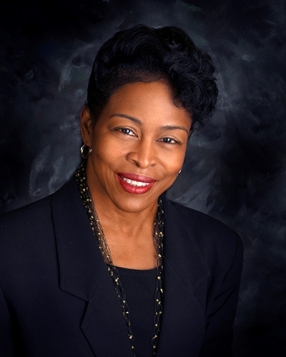
For more than 30 years, Pat Locke has been influencing America’s youth to consider West Point as part of their future. COL (R) Deb McDonald ’85, former USMA Director of Admissions, estimates Locke’s influence to be in the “tens of thousands.” “Her success has reached legendary status,” says COL Joseph Funderburke ’95, the senior military fellow at the National Defense University’s Institute for National Strategic Studies, and Locke continues to inspire and mentor candidates as they transition to cadets in the Corps and in their subsequent Army careers. “Her hand has guided the paths of First Captains, Rhodes Scholars, Infantrywomen, Rangers, Sappers, and leaders at the highest levels of government,” says CPT Simone Askew ’18, a former First Captain. One of two African American women in the historic Class of 1980 and the first to graduate from the Academy by Order of Merit, as a cadet Locke was co-captain of the Women’s Gymnastics Team. Breaking barriers as one of the first women to serve in multiple combat arms assignments (an Air Defense Artillery officer), Locke medically retired while on the promotion list (below the zone) to lieutenant colonel, after a training accident damaged her spine. After retiring, Locke was recruited to join the West Point Admissions Field Force. She later created the West Point Leadership Ethics and Diversity in STEM (LEADS) program, an initiative that has benefited more than 27,000 young students, and she supported it through a non-profit organization to which individuals and corporations could make tax deductible donations for LEADS scholar awards and other West Point philanthropic activities. For her effort to promote West Point awareness, character development, and STEM competence, Congressman Gerry Connolly had Locke’s name and the LEADS program entered into the Congressional Record. Locke has received the Golden Torch Award from the National Society of Black Engineers, the Wings to Succeed Award from the National Association of Multicultural Engineering Program Advocates, and the Women of Color in STEM Visionary Award. [WATCH VIDEO]
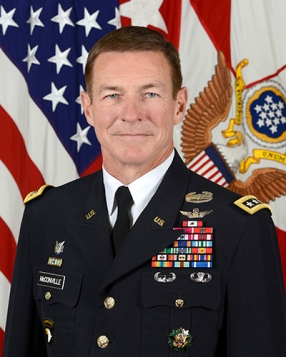
GEN (R) Jim C. McConville ’81
When reading GEN (R) Jim McConville’s nomination letters for the Distinguished Graduate Award, two themes immediately come into focus: his endurance and his transformational initiatives. While endurance could apply to McConville’s reputation as a marathon runner, it refers to his 42 years of service to the nation, his nearly three years as Eagle 6 in the 101st Airborne Division (longer than any other officer in history, including a year of combat division command in Afghanistan), his 39 months of combat deployment in Iraq and Afghanistan, and his nine consecutive years on the Army Staff—as the G-1, as the Vice Chief of Staff of the Army, and finally as the 40th Chief of Staff of the Army (CSA). McConville learned about Army transformation firsthand when he accessed into the Army’s newly created Aviation branch in 1983 and was vital to the effort to overhaul systems, processes, organizations and doctrines to enhance Army effectiveness. When McConville moved to the Pentagon in 2014 he initiated several transformational changes. His “People First” plan transformed Army personnel from legacy processes to a modern talent management system; he helped lead the establishment of Army Futures Command and the development of the Big 6 Investment priorities; and his “Winning Matters” push was instrumental in providing the institutional support needed to improve Army warfighting readiness. GEN (R) Joseph Martin ’86, the Vice Chief while McConville was CSA, says McConville, “as the Chief of Staff, masterfully led the Army through several daunting challenges during our nation’s civil unrest, the COVID-19 pandemic, our withdrawal from Afghanistan and the Army’s response to the Russian invasion of Ukraine.” McConville’s awards and decorations include six Overseas Service Bars, three Bronze Star Medals and two Air Medals. The Honorable Ryan D. McCarthy, the 24th Secretary of the Army, says, “[McConville] is a generational talent, officer and leader who has lived and modeled the values that West Point exists to ingrain in its graduates: Duty, Honor, Country.” [WATCH VIDEO]
Kathleen S. Hildreth ’83

Kathleen Hildreth is West Point’s most commercially successful woman graduate to date. A member of the Glee Club and Protestant Chapel Choir as a cadet, Hildreth commissioned as an Aviation officer. She flew VIPs in Korea then served as a maintenance test pilot at Hunter Army Airfield before choosing to remove the uniform in 1988 as a captain. While she left the Army, her service continued. After positions of increasing responsibility with Fortune 500 companies, Hildreth founded M1 Support Services in 2003. Through her leadership, M1, a nearly billion-dollar service company, has supported the DoD in over 43 CONUS locations and OCONUS in Iraq, Afghanistan, Chad, Djibouti, Japan, Korea, Germany, Lithuania, and 27 other countries. M1’s critical support earned the Army Aviation Association of America’s Materiel Readiness Award for Contributions by a Major Contractor in 2020, 2021, 2022 and 2023. With her entrepreneurial success and exceptional leadership, Hildreth was the first veteran named to the Forbes list of “America’s Richest Self-Made Women” in 2019 and every year since. In 2023, Forbes also selected her to the prestigious “50 Over 50” list. Since 2020, she has served on the board of Wounded Warrior Project (WWP). She was inducted into West Point’s Omar N. Bradley Lifetime Giving Society in 2023. Hildreth has addressed the West Point Entrepreneurs, cadet academic classes and the Corbin Forum. She established a $1 million Glee Club endowment and provided financial support to publish “Hoops and Heroes,” the history of Army Women’s Basketball. Hildreth is financially supporting the Dean’s initiatives for the 50th anniversary of women at West Point and the Michie Preservation Project, and she serves on the WPAOG Campaign Cabinet. “She is always asking how else she can help…attributes of a true servant leader,” says LTG (R) Michael Linnington ’80, former Commandant of Cadets and current CEO of WWP, “one more interested in those she serves than in any accolades available to her.” [WATCH VIDEO]
Learn more about the award and our past recipients: www.westpointaog.org/DGACriteria

